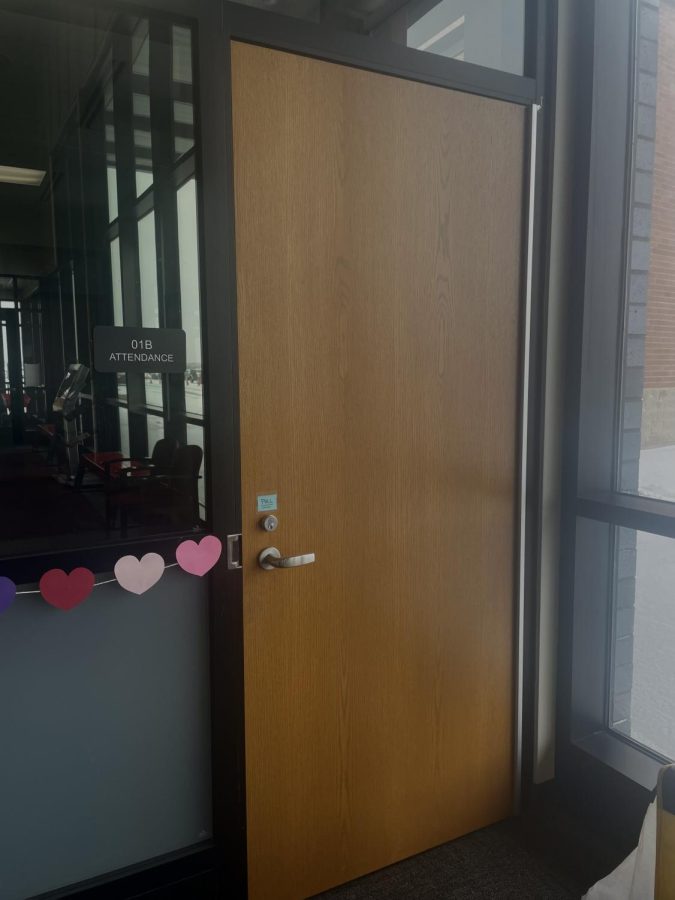Huntley High School’s admin push out stricter attendance
Admins take on why attendance guidelines and IDs are constantly pushed out.
The door to the room where students check out when called out.
January 28, 2023
As the year begins to dwindle to an end, students tend to miss more school, wear their IDs less, and want more blended privileges. However, Huntley High School’s admin is taking precautions to ensure that students are where they need to be.
According to dean Alice Ohlinger, the investigation into attendance is not new.
“Starting back in the Covid days, we really started to take some deep dives into overall data, and one of the persistent data points we kept seeing was a pretty poor attendance rate for [Huntley High School],” Ohlinger said. “If there was a single point of emphasis, we have a significant [number] of students who miss class. [Does this mean] we have kids who are hiding? [Is it a] blended problem? [Do we have] genuinely truant students who aren’t showing up to the building?”
Because attendance is a part of what ranks schools, it makes perfect sense for Huntley High School to want to recuperate that number.
“Selfishly for us, one of the things that schools are rated on is attendance rate, so we want to improve that for our own rate, and our classification for Illinois could be better if we had a higher attendance rate,” dean Tom Kempf said.
Admin relies on an abundance of systems to keep track of students’ attendance. “We rely on technology for a lot of our basic attendance systems,” Ohlinger said. “Teachers take attendance on PowerSchool, [and] run reports on the absence of students in class.”
From there, deans and supervisors work with the attendance office so that admin is able to look at students who have been called out, as well as relying on PowerSchool for teacher attendance.
According to Kempf, there is also a system for called-out students.
“We freely go to the deans’ offices to kind of tease out what we’re seeing. Then we use Hero for tardy passes and stuff like that to implement consequences. [Through it, we have the option to] notify parents and students,” Kempf said. “Really, it’s manpower. Someone who’s sitting behind a spreadsheet or sitting behind a report saying, these kids are now at the threshold and we need to do something else other than our automated system.”
According to Ohlinger, it is important to remember that attendance is in the student handbook. The consequences that follow poor attendance should not be as surprising as most students may take them.
“After we collect the data from PowerSchool, we rely on the deans’ offices to tease out [the problem.] Then we use Hero to implement consequences,” dean Tom Kempf said.
According to attendance office worker Angela Howard, the most difficult thing about taking attendance is how students tend to not follow directions and not get consequences.
When students skip, it affects the “safety of the school,” Howard said. “If it’s not a student [who] belongs here and they’re walking in the building and they’re not scanning in we don’t even know if that’s our student. So it’s very important that you guys scan in and scan out and wear IDs.” Howard said.
“But for the kids, you can’t learn if you’re not in the classroom,” Kempf said. “That’s ultimately the goal. We want you all to be successful, and that level of success is directly tied to being in the class.”


